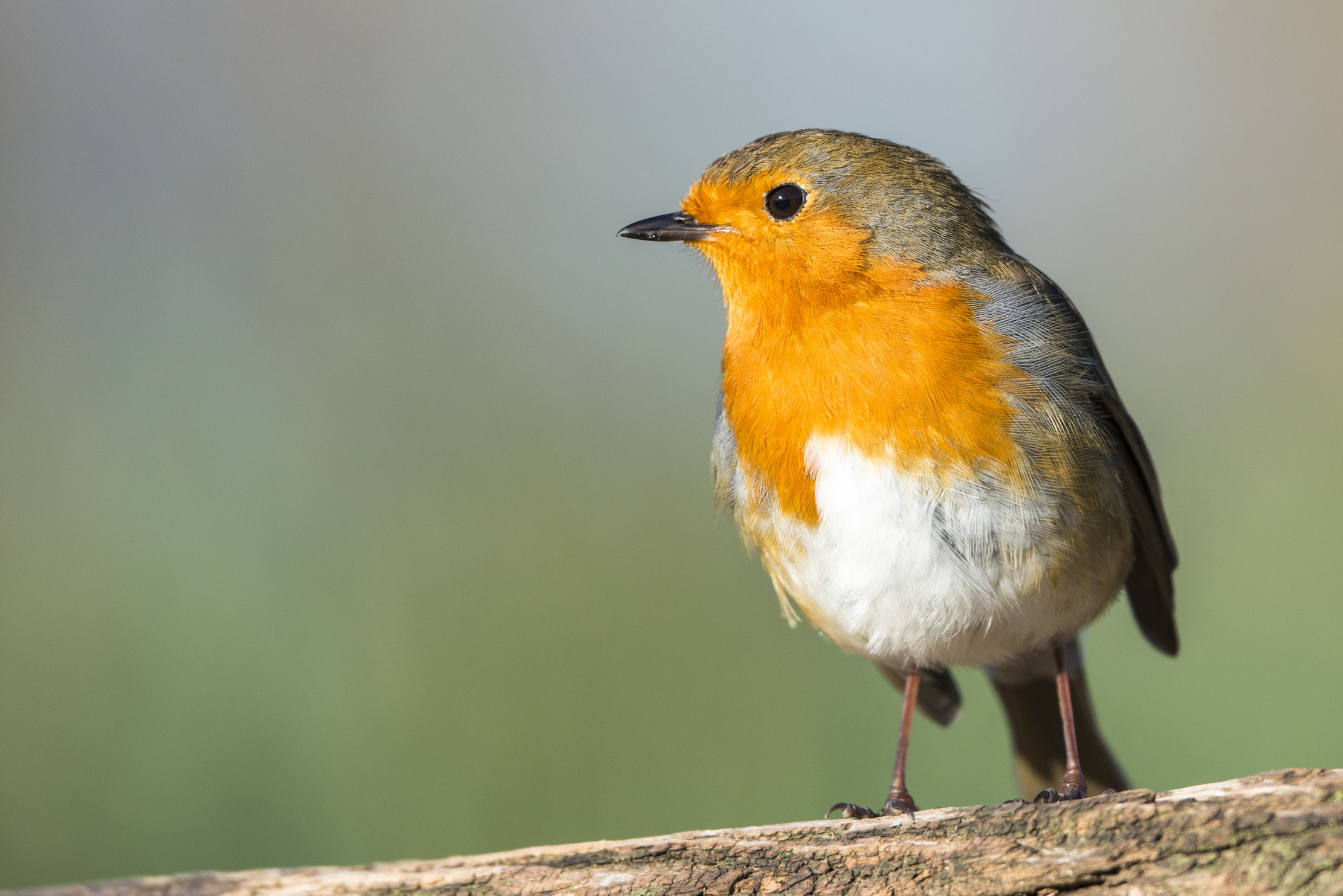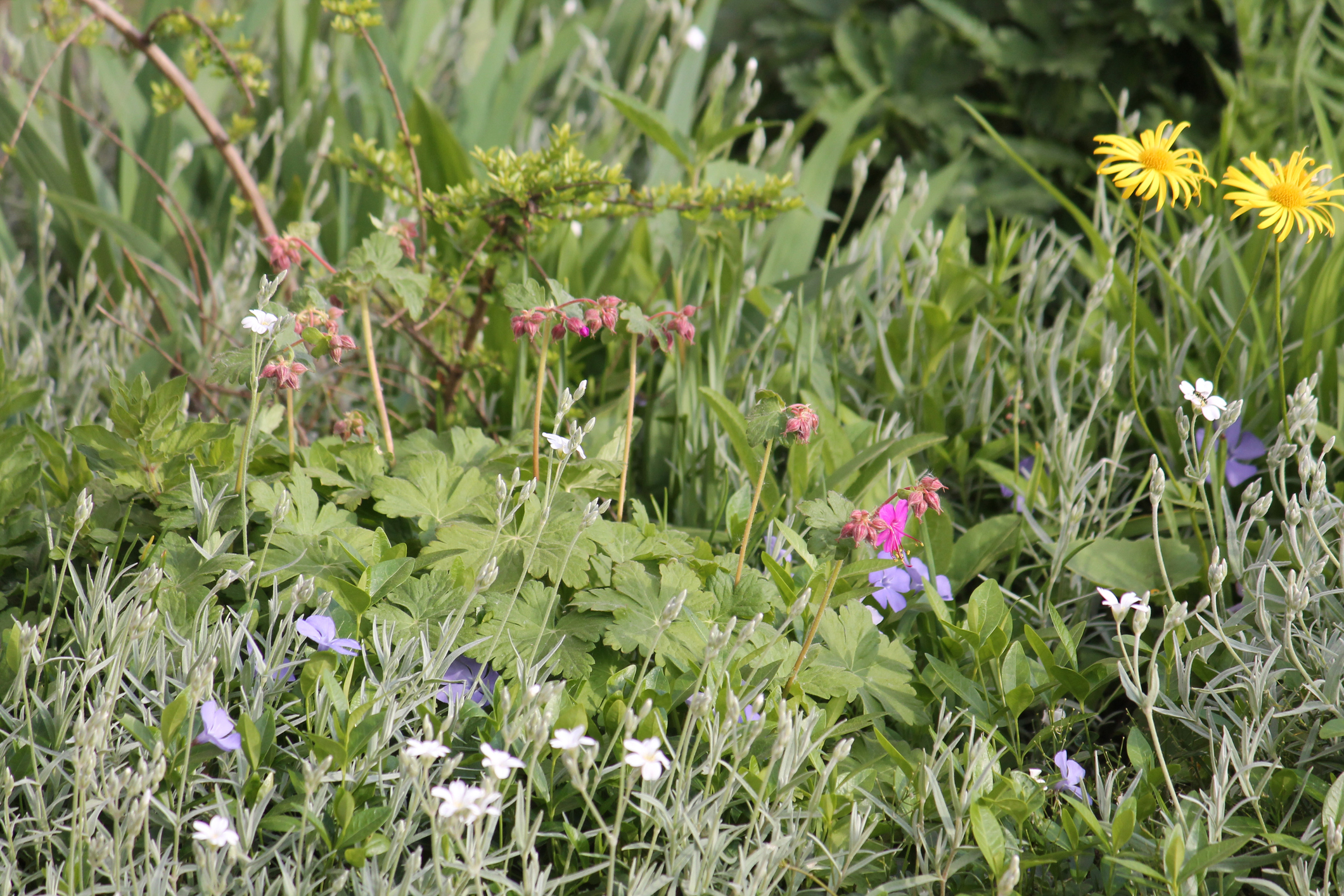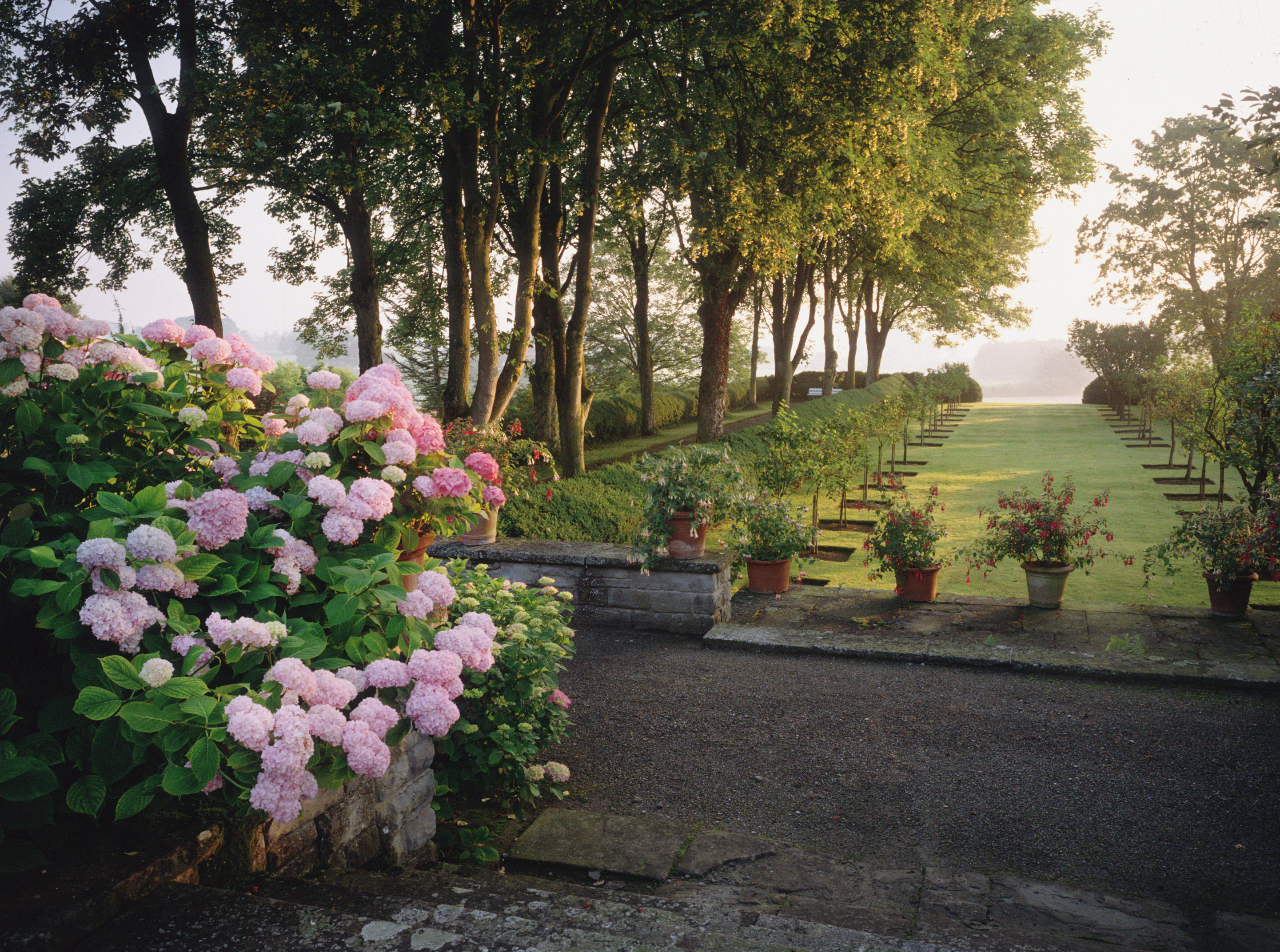Alan Titchmarsh: 'A stately pile in my part of Hampshire has been on the market for years — but one buyer didn't even make it to the door before getting back in his helicopter'
Silence is golden — and more readily accessible at this time of year than any other, says Alan Titchmarsh.


There is great delight to be had poring over the properties featured in Country Life each week, dreaming of what life would be like in a Scottish castle (so reasonably priced, but do bear in mind the midges) or a townhouse in London’s Eaton Square (worth a king’s ransom, but, oh dear, the traffic) or perhaps that cottage in the Cotswolds (if you don’t mind standing next to Hollywood A-listers in the queue at Daylesford). The estate agent’s particulars will give you details of acreage, proximity to schools and railway stations, but never — no, never — an indication of noise levels.
You can pay double-figure millions for your rural dream house, but — unless it really is that castle in the Highlands — the chances are that the thing you will be unlikely to acquire at any price is… silence.
A well-known stately pile in my part of Hampshire has been on the market for some years now. It fulfils all the requirements of someone seeking a country estate in terms of accessibility to London, rolling parkland peppered with handsome clumps of oak trees, the obligatory cedars of Lebanon, cottages for the staff and such like, but one prospective purchaser did not even get as far as the Palladian portico. He stepped out of his helicopter, listened to the hum of the nearby M3, turned on his heel and took off in search of a more peaceful neck of the woods.
For almost all of us, silence in the garden is a commodity as rare as hen’s teeth, either as a result of traffic noise, aircraft flight paths, leaf blowers, strimmers, chainsaws and all manner of powered machinery. For years now, I have declined to use power tools on a Sunday. It is a gesture not solely connected with the Lord’s Day, but a belief that, for one day a week at least, it should be possible to sit in the garden without the incursion of the din created by the workings of the internal-combustion engine.
"Listen to the gentle susurration of bamboo foliage in the passing breeze, to the crunch of freshly raked gravel under your feet and, if you are lucky, the crack-crack of the snail shell being hammered against the anvil of a cobblestone by a thrush intent on enjoying its Christmas dinner every"
Yet, there is one day in the year when silence is likely to pertain across the land more than any other — Christmas Day. By lunchtime, the world and his wife will be indoors, having already travelled to Auntie Mabel’s or received the clamouring throng on their own doorstep. They will be well into the fizz or the sherry by 1pm, so that is the moment to head out into the garden. With any luck, the traffic will be stilled, the children will be engaged in ripping open the paper on a mountain of gifts and you — glancing to right and left to make sure you are unobserved — can sneak out of the door and treat yourself to the sounds of Nature.
Sensory gardens (a term that irritates me somewhat in that all gardens are sensory if you take the trouble to notice) are all the rage, but sound — apart from the pleasant trickling of a fountain — is seldom considered. Listen to the gentle susurration of bamboo foliage in the passing breeze, to the crunch of freshly raked gravel under your feet (you raked it before the visitors arrived) and, if you are lucky, the crack-crack of the snail shell being hammered against the anvil of a cobblestone by a thrush intent on enjoying its Christmas dinner every bit as much as you will in a few minutes’ time.
You will hear the gentle tinkling of a stream or a rill more clearly on Christmas Day than on any other, thanks to the lack of competition, and those birds that are still singing — the robin, the blue tit, the blackbird — will find their plangent song is carried further and further on the still air thanks to the lack of human competition. Hear the buzzard’s mew and the red kite’s whistle in the clear air above.
Exquisite houses, the beauty of Nature, and how to get the most from your life, straight to your inbox.
Notice, too, if you are lucky enough to catch the moment, the broader, natural ambience of the British countryside. Even in the town, the lessening of urban volume will, on this particular day, contribute to the pleasure of crunching your way through fallen leaves, of absorbing the cathedral-like silence inside your greenhouse and — if you listen very carefully — the language of the trees as their sturdy limbs creak and flex in the breeze.
‘All the sounds of the earth are like music,’ wrote Oscar Hammerstein in Oklahoma!. And Christmas is, I reckon, the very time of the year to appreciate them. Happy Christmas!
‘Jack Frost — A Winter Story’, the new album from Alan Titchmarsh and Debbie Wiseman (Silva Screen Records, £13.99), is out now

Alan Titchmarsh: The plants that make me smile the most
Alan Titchmarsh admits that the plants that give him most pleasure aren't always the ones he's intended to grow.

Alan Titchmarsh: The iconic British garden designer who worked for kings, queens and A-listers across the world
Great garden designers 'have a plant vocabulary that runs into hundreds or even thousands' says Alan — and that's at the
Alan Titchmarsh is a gardener, writer, novelist and broadcaster.
-
 'Fences have blocked wildlife corridors, causing the wildebeest migration to collapse from 140,000 individuals to fewer than 15,000': Is the opening of the Ritz-Carlton in Kenya’s Masai Mara National Reserve a cause for celebration or concern?
'Fences have blocked wildlife corridors, causing the wildebeest migration to collapse from 140,000 individuals to fewer than 15,000': Is the opening of the Ritz-Carlton in Kenya’s Masai Mara National Reserve a cause for celebration or concern?In Kenya's iconic Masai Mara region tourism is an important and necessary part of the economy, but the arrival os several large hotel groups — including Ritz-Carlton — have some on edge.
-
 ‘I get all twitchy when I see people wearing something that really doesn’t belong’: A watch for every summer occasion
‘I get all twitchy when I see people wearing something that really doesn’t belong’: A watch for every summer occasionThere’s a watch for every social summer occasion, from the Mediterranean to muddy festivals. Chris Hall selects some of his favourites.
